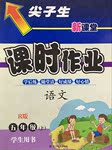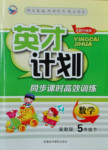
阅读理解
On Easter morning, as the first rays of the sun lighten the sky at Bethlehem, Pennsylvania, the plaintive (哀伤的) sounds of trombones (长号) call the townspeople to Moravian(摩拉维亚教派) Burying Ground where they welcome the rising sun with songs of praise: Christ is risen.
In similar ceremonies throughout the land millions of people gather on hilltops, parks, churches and open spaces to salute (致敬) another Easter dawn. There is a resurrection of hope and joy as the earth reawakens to another spring, New life emerges: young lambs, fresh green grass, and delicate (纤细的) blooms appear. Days are growing longer and there is more warmth in the sun. Birds sing and the world rings with gladness.
One of the holiest days of Christendom (基督教教界), Easter commemorates (纪念) Christ's resurrection (复活) from the tomb where he had lain for three days following his crucifixion (钉死于十字架上) When he arose after the three days it was to fulfill his promise to rise again as proof of eternal life.
Although Easter is based on events in the life on Christ, older traditions have influenced the customs of the festival. The name Easter itself derives from the ancient Norse (挪威人) festival of spring sun (Eastre) which celebrated the awakening of new life and the death of winter. The Christian Easter gradually replaced the pagan (异教的) festival, but some of the rites (仪式), of spring were retained since Christ’s resurrection had occurred during that season.
Celebration of Easter by early settlers in the United States mirrored their European backgrounds. In the regions settled by those of Roman Catholic (罗马天主教) heritage (传统) Easter was observed from the beginning. But the straight-laced [古板的]Puritans in New England, still influenced by the British prohibition (禁止) against what they considered profane (亵渎的) celebrations of Christmas and Easter, did not observe either holiday.
Easter is now celebrated throughout the country, although the customs, traceable to the different ethnic heritages, still vary with the regions. The German-Americans of Pennsylvania, for instance, preserve the custom of eating fried crullers(一种油煎饼) on Shrove Tuesday (大斋节的前一天); and those of Greek origin take part in a funeral procession following a flower- decked bier (棺材) bearing the figure of Christ.
1.The Easter comes most probably in ________.
[ ]
A.June
B.September
C.April
D.December
2.Which of the following statement about the Easter is tree?
[ ]
A.The Easter is only one of religion holy days.
B.The Easter just celebrates the renewing of the nature.
C.All people throughout the Christendom celebrated the Easter since the beginning.
D.Different ethic groups celebrate the Easter in a different way.
3.The Easter was not celebrated by ________ in the early days of the United States.
[ ]
A.those with Roman Catholic tradition
B.the Germans settled in Pennsylvania
C.the Puritans from the Britain
D.those with Greek origin
4.Which of the following is closest to the meaning of the word “observe” (in Line 3, para. 5)?
[ ]
A.Watch carefully.
B.Comment.
C.Obey.
D.Celebrate.
5.The Christian Easter maintains some ceremonies of Spring because ________.
[ ]
A.the Easter comes in Spring
B.the Christians like Spring in which new life emerges
C.it is an old Norse festival
D.Christ's resurrection had happened in Spring
 尖子生新课堂课时作业系列答案
尖子生新课堂课时作业系列答案 英才计划同步课时高效训练系列答案
英才计划同步课时高效训练系列答案科目:高中英语 来源: 题型:009
阅读理解
短文改错
此题要求改正所给短文中的错误。对标有题号的每一行作出判断:如无错误,在该行右边横线上画一个勾(√);如有错误(每行只有一个错误),则按下列情况改正:
此行多一个词:把多余的词用斜线(/)划掉,在该行右边的横线上写出该词,并也用斜线划掉。
此行缺一个词:在缺词处加一个漏字符号(∧),在该行右边的横线上写出该加的词。
此行错一个词:在错的词下划一个横线,在该行右边横线上写出改正后的词。
注意:原行没有错误的不要改。
I use my bike most in the summer when 1._____________
the weather is warm or dry. It can be very 2._____________
unpleasant of winter when it is cold and 3._____________
the rain is pour down. It can also be 4._____________
very dangerous. You must of course 5._____________
careful on a bike. Accident are not the 6._____________
only problem, though. One day I go to school 7._____________
and came back to find my front wheel had 8._____________
missing. It was a long walk towards the 9._____________
repairer’s! Now I have two strong locks. 10._____________
查看答案和解析>>
科目:高中英语 来源:英语教研室 题型:009
短文改错
此题要求改正所给短文中的错误。对标有题号的每一行作出判断:如无错误,在该行右边横线上画一个勾(√);如有错误(每行只有一个错误),则按下列情况改正:
此行多一个词:把多余的词用斜线(/)划掉,在该行右边的横线上写出该词,并也用斜线划掉。
此行缺一个词:在缺词处加一个漏字符号(∧),在该行右边的横线上写出该加的词。
此行错一个词:在错的词下划一个横线,在该行右边横线上写出改正后的词。
注意:原行没有错误的不要改。
I use my bike most in the summer when 1._____________
the weather is warm or dry. It can be very 2._____________
unpleasant of winter when it is cold and 3._____________
the rain is pour down. It can also be 4._____________
very dangerous. You must of course 5._____________
careful on a bike. Accident are not the 6._____________
only problem, though. One day I go to school 7._____________
and came back to find my front wheel had 8._____________
missing. It was a long walk towards the 9._____________
repairer’s! Now I have two strong locks. 10._____________
查看答案和解析>>
科目:高中英语 来源:福建省泉州五中2007-2008年高考模拟考试 英语试题 题型:050
| |||||||||||||||||||||||||||||||||||||||||||||
查看答案和解析>>
科目:高中英语 来源:浙江省嘉兴一中2010-2011学年高二10月月考英语试题 题型:054
| |||||||||||||||||||||||||||||||||||||||||||||||||||||||||||||||||||||||||||||||||||||||||||||||||||||||||||||||||||||||||||||||||||||||||||||||||||||||||||||||||||||||||||||||||||||||||||||||||||||||||||||||||||||||||||||||||||||||||||||||||||||||||||||||||||||||||||||||||||||||||||
查看答案和解析>>
科目:高中英语 来源:0103 月考题 题型:阅读理解
查看答案和解析>>
湖北省互联网违法和不良信息举报平台 | 网上有害信息举报专区 | 电信诈骗举报专区 | 涉历史虚无主义有害信息举报专区 | 涉企侵权举报专区
违法和不良信息举报电话:027-86699610 举报邮箱:58377363@163.com